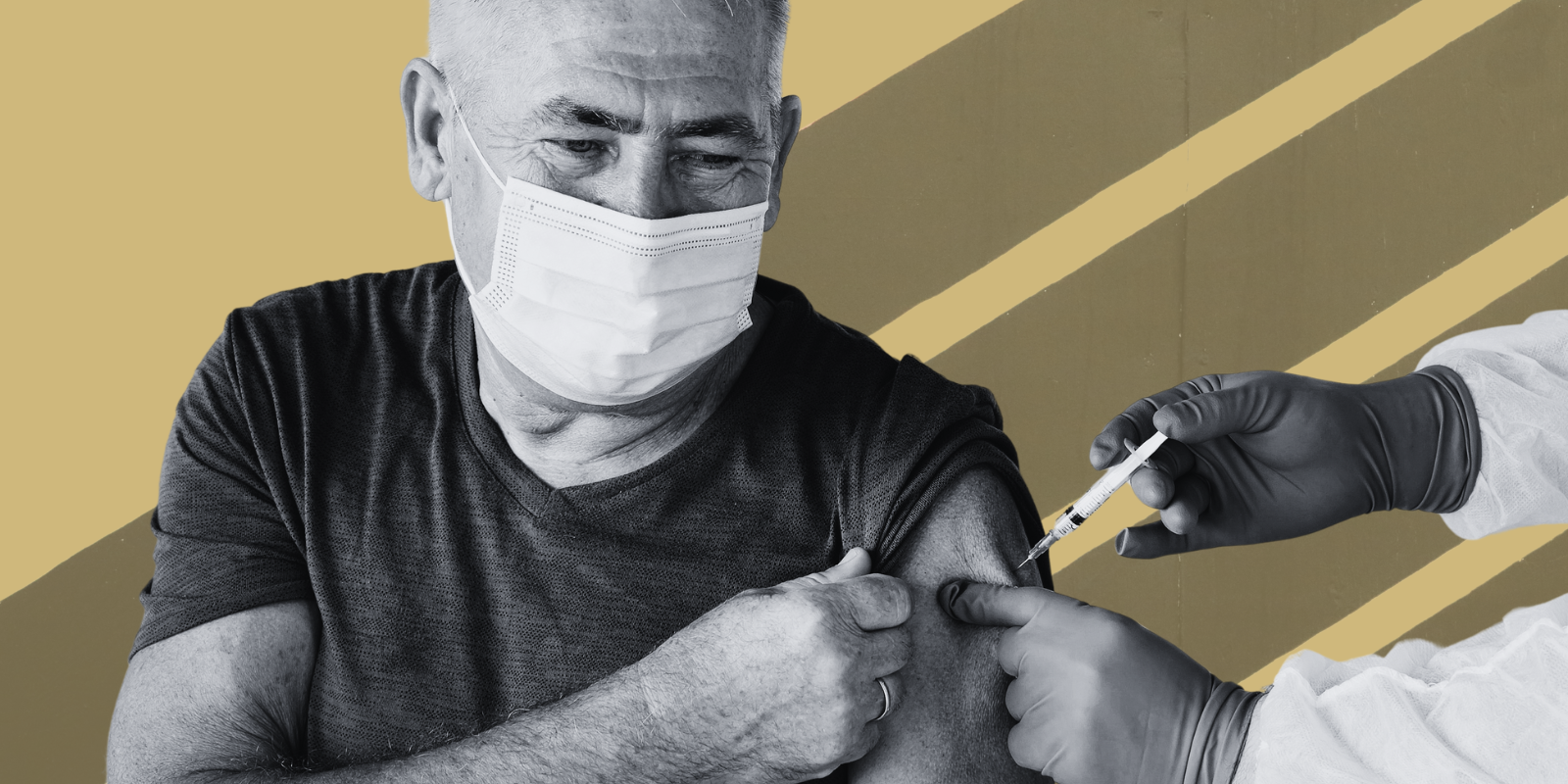What is a booster and why do some vaccines require more than one dose?
Essentially, a booster is just an extra dose of a vaccine, and the purpose is to rebolster the immune system, which can wane over time. Those protective antibodies from vaccines, either from childhood or earlier in life, even in adulthood, can diminish over time or as people get older.
Our adaptive immunity, the part of our immune system that gives us longer standing robust immunity over time, lessens as we age, so we have to somehow circumvent that to improve our protection from serious illnesses. That’s really where those boosters come in.
Boosters can also be effective in combating some viruses and pathogens that are smart and evolve. If a pathogen is particularly good at adapting, you may need a booster more often. The flu and COVID-19 vaccines are good examples of this. We try to get the immune system a blueprint of these illnesses so it can manage changes those pathogens are making over time.
As an adult, how do you know if you need a particular booster?
First, it’s a good idea to try and get your immunization records. Don’t always assume that the doctor you’re currently seeing as an adult has that information. You may have to find those records somewhere else, like a health department or even the pediatrician you saw as a child. From there, you can have a discussion with your primary care provider about what you might need based on your health and what vaccines you may be missing that will help prevent severe illness.
There are some great online resources that can be helpful, too. The U.S. Centers for Disease Control and Prevention has a fantastic vaccine schedule for every age range, including adults, and has recommendations for people with specific medical conditions, like asthma or diabetes.
Some people may be worried about increasing health threats, like measles, for example, and think a booster is a good idea even if they don’t necessarily need one. Is there such thing as over vaccination?
Generally, I would say no. If we’re talking about vaccines like MMR (measles, mumps, and rubella) there have been studies that look at patient-reported adverse outcomes. The majority of reported side effects are very similar to when an extra dose isn’t administered. These side effects can include low-grade fever, headache, arm pain, and redness around the injection site.
Regarding measles, most adults do not need a booster vaccination. Individuals born before 1957 are considered immune since they were alive during several measles epidemics in the U.S. prior to MMR vaccine distribution in 1963. Thus, they were likely exposed to the virus and have lifelong protective immunity as a result. However, individuals born between 1957 and 1968 may need to receive a booster vaccination as there were two types of measles vaccines initially developed and used during those years. One of those vaccines, known as the killed measles vaccine, was not effective and was discontinued in 1968. So, people born between 1957 and 1968, who received killed measles vaccine, received a measles vaccine of unknown type, or are unable to find documentation of MMR vaccination should likely receive an MMR booster vaccine. After 1968, the measles vaccine was highly effective at providing lifelong immunity.
With measles, generally one booster dose is enough. But if you’re worried, talk to your primary care physician. There are ways to test to see if a person has received some vaccines, but for the most part, an extra dose will not be harmful.
On the flip side of that, is it ever too late to get immunized if you’ve missed some vaccines as a child?
It depends. Some vaccines that we typically get in childhood protect against circumstances that are unique to kids. For example, getting the meningitis vaccine young is a good idea because kids are more likely to be in congregational-type settings. Meningitis can be devastating, but if you did not receive your childhood meningitis vaccines and are not living in a dorm setting during your first year of college, then vaccination is generally not recommended in adulthood.
TDAP (tetanus, diphtheria, and pertussis) boosters are recommended every 10 years, so that’s something adults will continue to get. If you did not receive the MMR or varicella (chickenpox) vaccines as a child, it’s recommended to get those. The HPV vaccine, which protects against several types of cancers, including certain types of cervical, throat, genital, and rectal cancers, is one that gets underplayed in adulthood. Typically, children receive this between fourth and seventh grade, but most insurances have extended coverage well into adulthood for those who did not receive as children because it’s that important.
At the end of the day, these are important conversations to have with your primary care provider because they’ll have the best advice for you and your needs.
Research has found that less than a quarter of adults have received age-appropriate vaccinations. What prevents that number from being higher?
That’s the million-dollar question. It’s becoming more of a prevalent issue, especially when we see outbreaks, like with measles. I tend to break it down into three common reasons: complacency, convenience, and confidence.
For some people, they may not often hear about vaccine-preventable diseases, such as polio or measles, because vaccines have been so effective at preventing infection and nearly eradicating them over the last century. Thus, individuals may become complacent and mistakenly think they no longer need that vaccine
Convenience can also be an issue for some folks, and that’s not just vaccines, it’s health care in general. Maybe they don’t have transportation or don’t seek preventive care due to lack of insurance or concerns about health care costs. There are a lot of circumstances that can keep somebody from accessing that care.
Finally, there’s confidence, which I hear often. It can be very challenging to get verified and accurate health care information outside of your doctor’s office, especially in a world that is highly divisive. This issue is nuanced, and there’s no silver bullet, but if you’re leery about a vaccine or vaccines in general, have a conversation with your doctor about why. It's our job as providers not to criticize, or make people feel bad about vaccination concerns they may have. Rather, we hope to foster a safe environment to have honest conversations with a trusted healthcare professional about why vaccinations are important for your health with evidence-based answers to any concerns you may have.
Our main priority is that you and your community are healthy and continue to be so for as long as possible with effective preventive care. We do our best to help patients in all facets of health needs, including promoting and advocating for effective, safe and evidence-based vaccinations.





